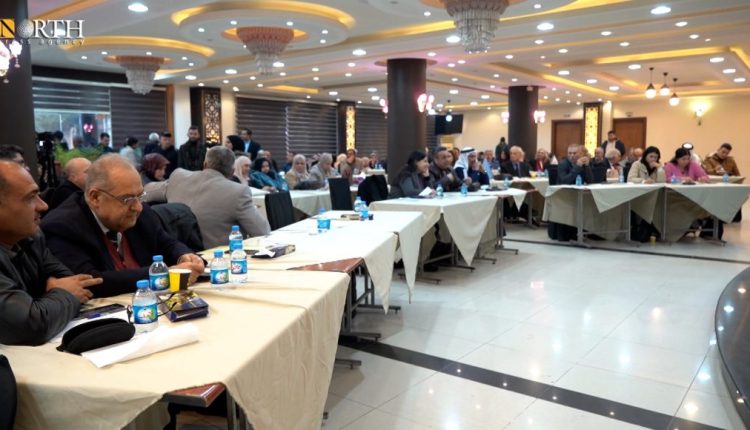
By Zana al-Ali
RAQQA, Syria (North Press) – Syrian political and civil figures emphasize the need for political reforms and the establishment of democracy to build the future of Syria, while also ensuring the rights of all communities.
For nearly three months, Syria has been experiencing a new phase following the fall of Bashar al-Assad’s regime, which ruled the country for more than fifty years under both Bashar, his father Hafez al-Assad.
Syrians now anticipate the establishment of a democratic system that guarantees the rights of all after a long period of authoritarian rule.
Model and identity
Sihanouk Dibo, co-Chair of the Public Relations Office of the Democratic Union Party (PYD), stresses the importance of learning from the factors that led Syria to this turning point.
He asserts that the exclusion of Syria’s diverse communities from power and the absence of democracy intersected with foreign agendas, leading to a conflict that lasted over 14 years.
Dibo tells North Press that Syria must guarantee the rights of its various communities and work towards realizing the values of the “Third Syrian Republic,” which includes decentralization across its regions.
In this context, Dibo presents the Autonomous Administration of North and East Syria (AANES) as a model that requires continuous development in the future.
He also underscores the need for a genuine national dialogue that includes all Syrian communities without exception, to establish a consensus on fundamental principles that will pave the way for a modern Syrian constitution that protects the identity of all Syrians.
Civil peace
Ismail al-Qusayr, a civil activist from the city of Salamiyah in the east of Hama, central Syria, points out a significant gap between rhetoric and actions at the present time, attributing this to the haste in making certain decisions.
The activist argues that the new government must focus on building a state founded on democracy and citizenship, where Syrians are not questioned about their identity.
He asserts that a state based on citizenship is the solution to these challenges, ensuring a pluralistic civil system built on free and transparent elections.
Al-Qusayr also expresses concern over potential obstacles to the electoral process, emphasizing the need for people to voice their opinions and be governed by laws that uphold the freedom of detainees and the press.
System of governance
Suhaila Dawood, a leader in the Syria al-Ghad Party, stresses the necessity of ensuring that the new Syria represents all segments of the Syrian population.
Regarding Syria’s future governance system, Dawood tells North Press that while some prefer a parliamentary system and others advocate for a presidential one, she personally supports a hybrid system that combines elements of both, considering it the most suitable for Syria’s unique nature.
The Syrian politician also emphasizes that the new administration must recognize the value of Syria’s human and economic resources, warning that these resources are highly coveted by external powers seeking to exploit Syria for their own interests.
